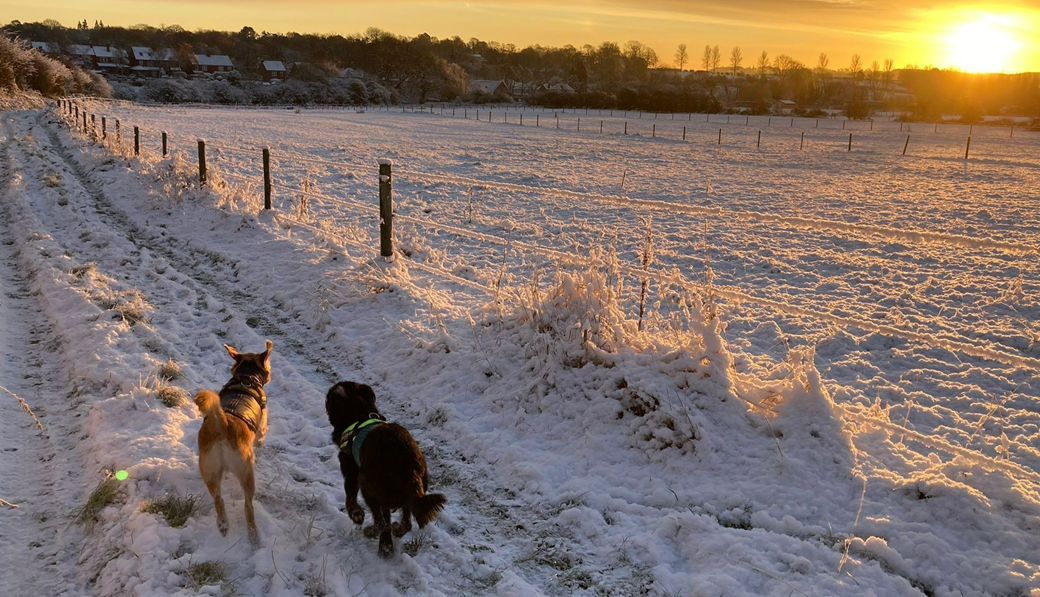
Winter Pet Health Advice
Despite their fur, cats, dogs and small furries can feel the cold just the same as humans do.
Here are some handy tips to help make sure your pet is happy and healthy during the chilly winter months. For more information, or to speak to someone about caring for your pet during the winter months please contact your local practice or speak to a member of the team.
Book an appointmentKeeping outdoor pets warm
As temperatures start to drop, it’s important that we consider how this might impact our outdoor pets.
It’s a good idea to provide extra bedding for rabbits and other outdoor pets and be prepared to move them into the house, a shed, un-used garage or utility room for shelter. Don't house pets in greenhouses or conservatories due to the temperature changes and never house them in garages that are regularly used by a car as there can be toxic fumes.
If you plan to move your outdoor pet indoors, then don't put them too close to a heater or radiator as they can very easily suffer from heat stress.
If you are keeping your pet outside, beds or houses should be raised off the ground to prevent the base becoming too cold, damp or rotten. Bedding should always be fresh and dry as it will freeze overnight even if it's slightly damp.
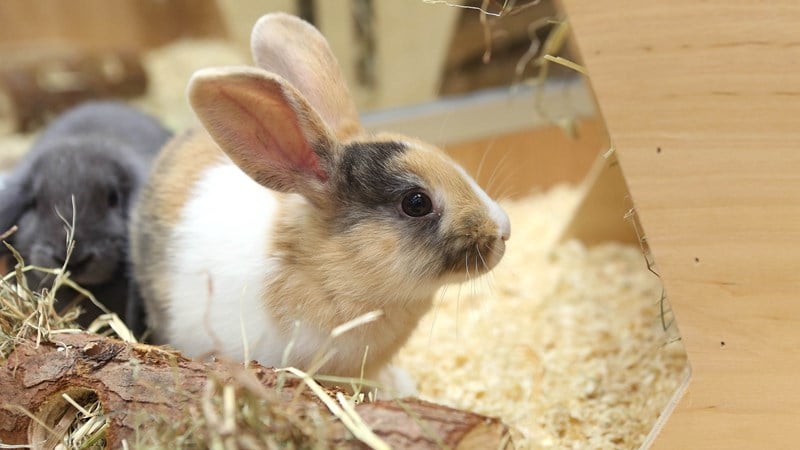
Winter walks
Whether you’re just popping around the block or you’re heading out to explore the countryside, read out top tips on how to keep your pet happy and healthy on a winter walk.
Most dogs will be fine outside as they are, but if it’s very cold, or if you’re spending a bit longer outdoors, then you might want to consider getting a coat for them and some protection for their paws. And as the evenings get darker, it’s important that both you and your pet can be seen easily in the dark. As well as reflective clothing, collars and harnesses, it’s also a good idea to choose items that produce their own light too. LED harnesses, collars and leads are readily available from Pets at Home and could help you both be visible in areas that don’t have a lot of lighting.
Grit and salt on your pet's paws can make them sore, so it is a good idea to wash it off. It can also make them poorly if they lick it off, so always rinse your dog's paws after walks.
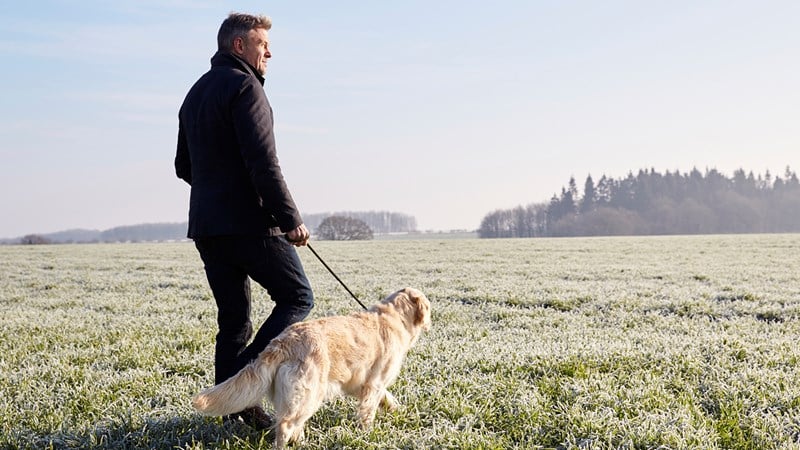
Ethylene glycol (found in antifreeze and snow globes)
The toxic component of antifreeze is called ethylene glycol. This is also sometimes found in snow globes. Ethylene glycol has a highly attractive taste, which means animals and even children can be drawn to it, so it’s important to keep it well out of reach. Uncleaned spillages can also get on pets’ paws, meaning they ingest the ethylene glycol as they clean themselves.
This is a problem for cats in particular due to their curious nature and sadly every year cats across Britain get seriously ill or die from antifreeze poisoning.
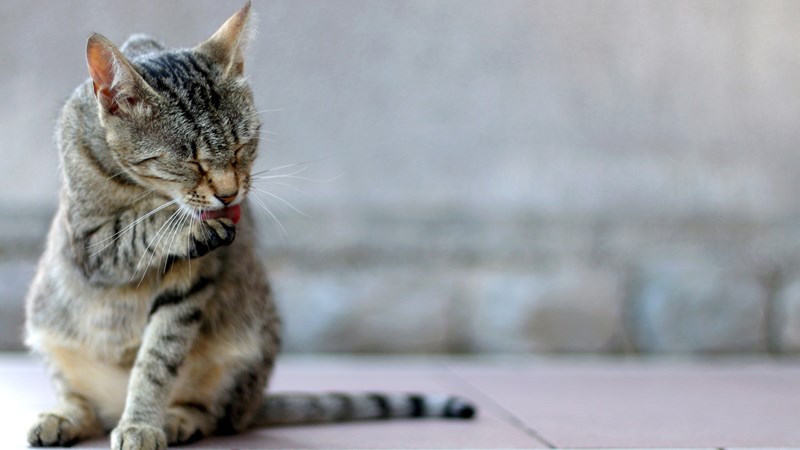
Outdoor water supplies
Don’t let water supplies freeze over. Top up outdoor bowls of drinking water with warm water and use a thermal cover on small furry pets’ water bottles. If you have a cat, make sure there’s extra water available in your home, as your cat’s usual outdoor sources may be frozen in very cold weather.
Fish ponds can freeze too – float a plastic football on the surface (a ping-pong ball will do the same trick in a birdbath), and never break the ice with force as that could shock or even kill your fish.
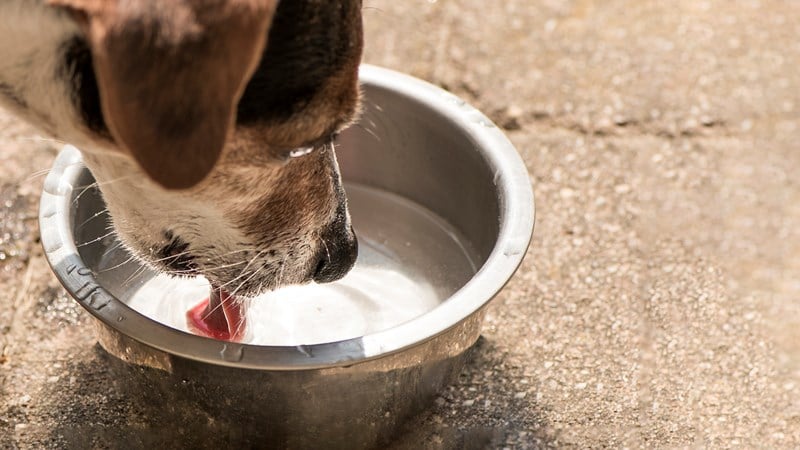
Outdoor litter trays
As we reach freezing temperatures, it’s worth considering whether you need to provide your cat with an outdoor tray of sand, cat litter or loose earth near the back door, in case the soil freezes.
Even cats that go to the toilet outdoors may prefer to use an indoor litter tray in very cold weather, so it’s a good idea to ensure that they have a litter tray available to them inside the house during the winter months.
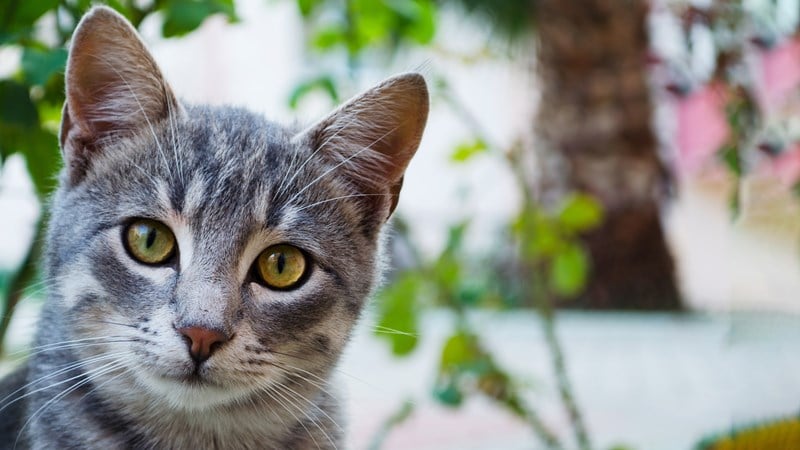
Festive fun
The festive season is full of an array of sparkly items and delicious food – a real temptation for your pet! Make sure your festive season is pet-proofed to avoid any accidents or more serious incidents.
If you do need to visit your vet, remember to check your local practice’s opening hours, and make note of their out of hours support for emergencies.

Read more expert pet advice
From healthy diets to preventing fleas, find free and helpful pet health and training advice to care for your pet.
